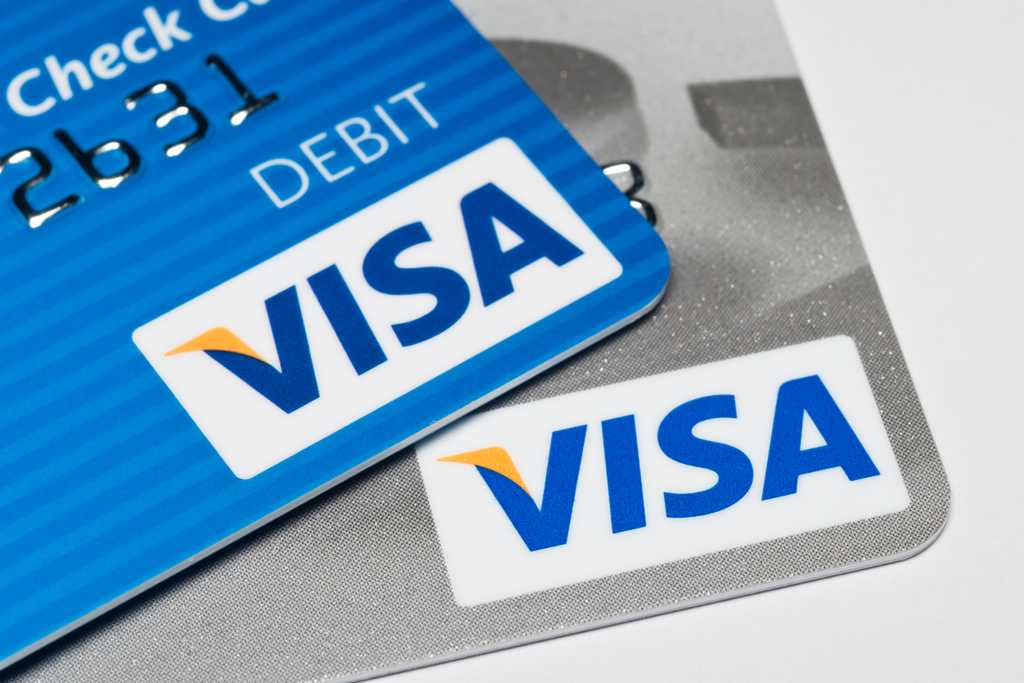Credit and debit cards both allow you to pay for goods and services without needing to deal with cash or checks. But while debit cards withdraw funds directly from your checking account, credit cards use an agreed-upon line of credit that counts toward your overall debt. Read on to learn more about the differences between credit and debit cards, as well as the pros and cons of using each.
What is a credit card?
A credit card is linked to a line of credit that is issued to you by the provider, typically a bank or credit union. When you pay for something with a credit card, the funds will come from your line of credit, and each month you’ll get a bill from your credit card provider for the amount you charged to that line of credit.
In order to determine your credit card limits, the provider will run a credit report that looks at how well you have repaid debt in the past, as well as several other factors, before determining a reasonable amount to offer you as a limit. As your credit score improves, you may be offered (or be able to apply for) a higher credit limit.
Once you reach your credit limit, you will not be able to use your credit card to pay for items or services anymore. If you try to use it without the available funds, the card will be declined.
What is a debit card?
A debit card is similar to a credit card but it withdraws funds directly from your checking account rather than from a line of credit. It’s the 21st century equivalent of writing a check. You can also use your debit card to withdraw cash from an ATM.
If you try to use your debit card to pay for something that costs more than the amount in your checking account, it may be declined. Depending on the amount, your bank may cover that amount with an overdraft, which is applied once your checking account runs out of money.
Differences between debit and credit
The main difference between debit cards and credit cards has to do with debt. When you use a credit card, you’re contributing to your personal debt. But because a debit card withdraws money from your checking account, it does not put you into debt.
Pros and cons of debit cards
If you have a checking account, you will be issued a debit card. There are several advantages and disadvantages to using your debit card for purchases, including the following.
Pros
- They don’t contribute to debt - When you use a debit card, you’re withdrawing money you have already earned from your checking account. That means you don’t have to worry about adding to your total debt when you’re using a debit card like you would with a credit card.
- You can use them to easily withdraw cash - While most stores take credit or debit cards these days, you may still need cash to pay a coworker for lunch or to buy something from a local vendor that doesn’t take cards. You can use your debit card to withdraw cash from an ATM, or you can get cash back when making a debit card purchase at a store that offers it. While many credit cards do allow you to access cash, they also often come with associated fees that you wouldn’t face with a debit card.
- They can help rein in your spending - If you have a spending habit, using a debit card instead of a credit card may help you rein in your spending and live within your means. That’s because you can’t use a debit card without money in your checking account, whereas you can use a credit card until you reach its limit.
Cons
- They may not help with large expenses - Even when you live within your means, you’ll have to deal with unpredictable expenses. Maybe your car tires need replacing, or your furnace finally gave out and you need a new one. Unless you hoard money in your checking account, your debit card probably won’t cover those expenses.
- They are more problematic if stolen - If your debit card is stolen or lost, the thief may be able to access your checking account funds directly. While many banks offer protection against theft on debit cards, it can take longer to recover those funds and can be more of a hassle.
Pros and cons of credit cards
Credit cards are good to have as a backup, but they also have their disadvantages. Here are some pros and cons of using a credit card.
Pros
- They help build credit - In order to qualify for a mortgage, car loan, or any other type of financing, you’ll need to have a good credit score. A good way to get started building credit is to use a credit card. You can find one with a low credit limit without any credit history. Use your card regularly to buy things like gas or groceries and try to pay it off in full every month. Eventually, you’ll be able to apply for a card with a higher limit and qualify for loans with decent interest rates.
- They are useful for emergencies - Even if you try to live within your means, you still need to be prepared financially for an emergency. A credit card is a good thing to have in your back pocket if you are faced with an unexpected car or house repair. You can charge the payment to your credit card and pay it off as you have funds available rather than draining your checking account to cover it (if you even have enough in checking).
- They can offer rewards - Many credit card companies will offer rewards like cash back or airline miles when you use their cards. If you use them responsibly and pay off the balance monthly, a credit card can be a good way of earning money back on your purchases.
- They offer protection against unwarranted charges - If your credit card is stolen and used without your permission, it’s usually pretty easy to file a claim with your credit card company and get those charges written off. Plus, you’ll still have money in your checking account to cover your everyday expenses while you wait for your new credit card.
Cons
- They can encourage overspending - If you have a history of overspending, a credit card can make that problem worse. Because you can use a credit card without needing to physically have money to pay for a purchase, you may end up buying things you don’t need and being unable to pay off the balance. If you are responsible, a credit card is a good tool to have, but if you find yourself spending uncontrollably it might be better to avoid them as much as possible.
- You have to pay interest - One of the reasons to pay off your credit card bill in full each month is to avoid interest. Credit cards tend to come with high interest rates, especially if your credit score is less than ideal. If you don’t pay off your balance each month, it’ll keep building as interest is added, and you may find yourself unable to get out from under that debt.
Which to choose?
Rather than asking yourself whether to get a debit or a credit card, it’s worth having both and weighing up each purchase you make. If you’re buying groceries or going to the movie theater, it’s better to use your debit card to ensure you’re not racking up debt you can’t pay off. But if you’re buying a new TV or lawnmower or paying for an unexpected expense, your credit card is a better option since you can pay off those larger expenses over time.
Frequently asked questions (FAQ)
Can you use a credit card as a debit card?
No; a credit card will not take funds directly from your checking account unless you set up an automatic bill pay. And even then, it’ll only take funds from checking monthly in order to pay the credit card bill. Debit cards, on the other hand, take the funds from your checking account each time a purchase is made.
How to differentiate between a debit card and a credit card
Debit cards and credit cards can look very similar. But you can easily recognize a debit card because it will clearly say the word “Debit” on it somewhere. If you don’t see anything that says “Debit,” it’s probably a credit card.
Is a credit card safer than a debit card?
That depends. If you’re worried about theft and fraud, a credit card can be safer as it prevents thieves from accessing your money. But if you are a shopaholic, a credit card can open a dangerous door of debt that you can have trouble getting out of.
Is using a debit card safe?
Yes; in most cases, it’s safe to use a debit card. Make sure your PIN is unpredictable (i.e. don’t use 1234 as your PIN; think of a number you’ll remember but that won’t be easy for someone else to guess). There is also the possibility that you’ll fall prey to a phishing scam, where a website mirrors one you trust but actually steals your card information. It’s a good idea to monitor your checking account on a regular basis so you can report any unrecognized charges as soon as possible. If you’re concerned about debit card fraud, use your credit card instead and pay it off monthly.
Summary
Debit and credit cards both allow you to make purchases without bothering with cash or checks, but each has their distinct differences as well as their pros and cons. When you understand how each works, you can make informed decisions about how to pay for your purchases responsibly and without getting yourself into uncontrollable debt.

